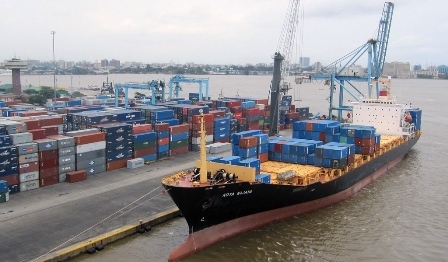In a startling revelation, Mr. Olumati Festus, the manager of Calabar Ports, disclosed that the port has remained void of container vessels for a staggering 25 years.
Festus made this assertion during a probing visit to the port by the House of Representatives Adhoc Committee on Ports and Harbours on Friday in Calabar.
Attributing the absence of vessels to the inadequate dredging of the Calabar channel, Festus emphasised that the port’s incapacity to accommodate larger vessels has significantly hampered economic growth in the region.
“The Calabar channel has not been dredged to allow bigger vessels to dock. Consequently, the economy of the zone is adversely affected. If more vessels could access the Port, it would inject a much-needed boost into the economy, creating numerous job opportunities,” he stressed.
Festus further highlighted the deplorable state of the access road leading into Calabar as another major impediment to the port’s functionality.
“The access road into Calabar is a logistical nightmare for cargo owners. It takes between four to five hours for a cargo-bearing truck to travel from Calabar to Akwa Ibom. To mitigate risks, vessels are instructed to dock only during high tides, as low tides pose a grave danger of submersion,” he explained.
Echoing Festus’s concerns, Mr. Nnaji Nnolim, the leader of the delegation and representative of Nkanu East/Nkanu West in the House of Representatives, underscored the urgency of rehabilitating the Calabar Port and dredging its channels.
“The Federal Government must intervene promptly to address the challenges plaguing the port. It is imperative to commence a comprehensive rehabilitation programme and dredge the channels to a depth of approximately 9.5 metres. This will not only enhance operational efficiency but also generate employment opportunities,” Nnolim emphasised.
Adding his voice to the discourse, Mr. Peter Odey, the Deputy Governor of Cross River, emphasised the strategic significance of the Calabar Port as an evacuation corridor to the Gulf of Guinea.
The revelation of Calabar Port’s prolonged drought of container vessels underscores the pressing need for immediate government intervention to revitalise this crucial maritime infrastructure and unlock its economic potential.



